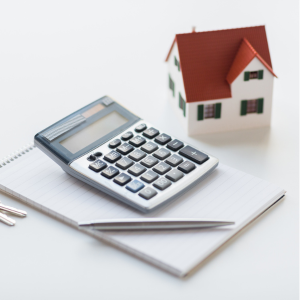
Understanding Real Estate Taxes in Newark, New Jersey
Navigating real estate taxes is vital while selling a Newark, New Jersey home. As with any large and growing city, property taxes are essential for residents.
Newark’s local government sets the tax rate, which differs from district to district and depends on the value of your property. If you sell your house, capital gains tax will also be applicable if the sale price is significantly more than the purchase price.
However, certain exemptions, such as the primary residence exclusion, may reduce your taxable amount, which allows qualifying sellers to exclude up to $250,000 in gains for single filers or $500,000 for joint filers. Following this regulation and the above, it is best to speak with an expert in taxes to properly utilize your money and stay within New Jersey’s borders legally in finances.
Moreover, grasping transfer taxes is critical when selling real estate in Newark; the seller usually bears these costs at closing and accounts for them as a percentage of the total transaction amount. Thorough knowledge of these taxes will ensure that you manage the selling process well and reduce the possibility of hidden costs.
What Taxes Have to Be Paid When I Sell My House?
Understanding the applicable taxes is crucial when selling your home in Newark, New Jersey. Consider the capital gains tax, which applies to the profit received from the sale of your home.
However, you will qualify for an exclusion if you have lived in your home for at least two of the five years preceding the sale. By doing so, your potential exposure to capital gains tax is effectively minimized or eradicated.
Alongside other tax obligations, New Jersey also has the Realty Transfer Fee, which is paid as a percentage of the sale price and is due at closing. Be forewarned about other local obligations, such as unpaid property taxes, that need to be settled before title transfer.
Tax obligations and selling your home can be complex, so I recommend discussing with a tax professional or a real estate attorney specialized in Newark’s rules to help ensure compliance with all obligations and maximize your gains.
The Better Cash Buyer team helps Newark homeowners understand and manage all tax obligations in selling a property, from capital gains exclusions to state transfer fees, ensuring a smooth, compliant, and financially sound transaction.
Navigating State and Local Taxes in Newark Real Estate Transactions
To understand selling a house in Newark, one must consider New Jersey’s capital gains tax alongside the municipal transfer tax Newark imposes. Both taxes are pertinent to the specific transaction; on the earning side, Newark’s municipal transfer tax makes things more difficult.
In addition, other financial obligations that homeowners might have include the homestead rebate program, as well as potential property tax reassessments
Complying with all the legal requirements while maximizing profits revolves around taxes and rebates. At this point, it makes sense to talk to a real estate attorney or tax advisor, as they will help make the selling process of the home in Newark smoother by easing the tax burden while respecting state and local laws.
Impact of Residency on Real Estate Taxation in Newark, NJ
Being a homeowner in Newark, New Jersey, comes with benefits, especially regarding real estate taxes, which can be significant. The residency status of an individual taxpayer greatly influences the sale of the property and its associated taxes.
Living in Newark, NJ, has advantages like tax incentives within the city. In New Jersey, there is an exclusion for primary homeowners that permits them to exclude up to $250,000 of capital gains tax on the sale of their primary home, provided certain conditions are satisfied.
This exclusion is available for both single filers and married couples filing jointly. Furthermore, residency impacts the applicable state income tax rate for capital gains tax.
Non-residents selling property in Newark might be subject to different withholding requirements than residents. Recognizing these details is crucial for maximizing returns during real estate transactions in Newark’s ever-changing housing market.
Careful strategizing and working closely with a New Jersey tax professional can guarantee compliance while unlocking savings via eligible deductions and credits for state residents.
How to Calculate Property Taxes When Selling Your Home

Knowing how to compute property taxes is vital for selling a Newark, New Jersey home. To begin, find out the assessed value of your property. The local tax assessor sets this each year.
This assessed value is multiplied by Newark’s current property tax rate to figure out your annual property tax due. While selling, prorate this amount based on how long you’ve occupied the home relative to the tax year.
For instance, if you sell partway through the year, you owe property taxes for that sold portion and are responsible for paying half for the year. Programs such as Homestead Benefit and Senior Freeze offer an exemption that lowers the taxable amount, thus saving money on taxes.
Speaking with a realtor specializing in Newark can help confirm the expenses and local compliance requirements. Understanding these details helps bypass unwanted expenses during closing and aids in the home-selling process when the house is sold after the unexpected costs are removed.
Contact us to ensure your property tax calculations are accurate when selling your Newark home—we’ll guide you through prorations, exemptions, and local requirements to help you avoid surprises at closing.
Exemptions and Deductions for Home Sellers in New Jersey
When selling a home in Newark, New Jersey, homeowners can benefit from various exemptions and deductions that may significantly reduce their tax liability. One of the most significant benefits is the capital gains tax exclusion, which allows single homeowners to exclude up to $250,000 of profit from the sale of their primary residence from federal taxes. In contrast, married couples filing jointly can exclude up to $500,000.
For this exemption to apply, a homeowner must have owned and lived in the house as their primary residence for two out of the five years before the sale. Furthermore, selling expenses like real estate agents’ commissions, legal fees, and advertising costs can be deducted from the sales price while computing capital gains.
New Jersey also has particular property tax deductions that may depend on the taxpayer’s situation. In addition, any work done to the home during ownership that increases its value may qualify as capital improvements and thus could improve the basis of the property.
Understanding these exemptions and deductions is crucial for any homeowner in Newark looking to maximize their financial advantage when selling their home.
Federal Tax Obligations for Home Sellers Explained
When selling your home in Newark, New Jersey, it’s crucial to understand your federal tax obligations to avoid any surprises. One key aspect is the capital gains tax, which applies if you sell your home for more than the original price.
However, many home sellers can benefit from the IRS exclusion, allowing you to exclude up to $250,000 of profit as a single filer or $500,000 if you’re married filing jointly, provided you’ve lived in the property as your primary residence for at least two of the last five years. It’s essential to keep detailed records of any improvements made over the years since these can be added to your home’s basis and potentially reduce taxable gains.
Moreover, you may still qualify for partial exclusions if you change jobs or have medical issues restricting you from fulfilling the residency requirement. Reportable gains during tax filing must be canceled on Schedule D of Form 1040. Consult with a tax advisor for accurate advice regarding real estate dealings in Newark.
Capital Gains Tax Implications on Property Sales
Knowing the tax implications of selling real estate in Newark, New Jersey, can optimize your financial planning. Selling a property incurs a capital gains tax, which is charged on the profit made from an asset.
The house’s sale price determines a homeowner’s capital gains, minus the purchase price, plus any tax-deductible renovations and selling costs. There is also a capital gains exclusion for owners of single-family homes if they stayed in the house for two out of five years leading up to the sale.
This exclusion allows you to exclude up to $250,000 of profit for single filers and up to $500,000 for married couples filing jointly. However, if you do not qualify for this exclusion or your earnings exceed these limits, you will be subject to capital gains tax based on your income bracket.
It’s crucial to consult with a tax advisor familiar with New Jersey’s specific regulations to ensure compliance and optimize your tax situation when selling your home in Newark.
Understanding the Home Sale Exclusion Rule for Capital Gains Tax

When you put your house on the Newark, New Jersey, market, it is advantageous to grasp the Home Sale Exclusion Rule regarding capital gains tax since it heavily determines your earnings. This rule permits homeowners to avoid paying taxes on a considerable profit from the sale of their principal residence.
Specifically, if you have owned and used your home as your primary residence for at least two of the five years before the sale, you may qualify to exclude up to $250,000 of gain if you’re single or up to $500,000 if you’re married filing jointly. This exclusion can be substantially beneficial when navigating real estate transactions in Newark’s competitive housing market.
It is vital to meticulously maintain documentation regarding the various home improvements made and expenses incurred during real estate transactions over the years, as these can potentially decrease your taxable gain. Significant tax savings are possible while selling your home in New Jersey, and careful planning and attention to detail are prerequisites for availing yourself of these tax savings.
The Process of Reporting Capital Gains From a House Sale on Your Tax Return
When you sell your home in Newark, New Jersey, it is essential to understand how to report capital gains on your tax return. The first step involves determining whether the sale of your primary residence qualifies for the capital gains exclusion.
If you’ve lived in the home for at least two of the past five years, you may exclude up to $250,000 of profit if you’re single or $500,000 if you’re married filing jointly. To calculate your capital gain, you’ll need to subtract the adjusted basis of your home from the selling price.
The adjusted basis includes the original purchase price, improvements made over time, and certain closing costs. Once you have determined your capital gain, it’s essential to complete IRS Form 8949 to accurately report these numbers, transferring them to Schedule D of your federal tax return.
In some cases, additional state-specific forms may be required when filing taxes in New Jersey. Proper documentation of all related expenses and improvements is crucial for ensuring accurate reporting and maximizing potential exclusions.
By carefully following these steps and maintaining thorough records, you can effectively manage your tax liabilities when selling a home in Newark and ensure compliance with federal and New Jersey state tax regulations.
Strategies to Minimize Taxes When Selling a House
When selling a house in Newark, New Jersey, homeowners can implement several strategies to minimize taxes and maximize profits. One practical approach is utilizing the capital gains tax exclusion, which allows individuals to exclude up to $250,000 of profit from their taxable income if they have owned and lived in the home as their primary residence for at least two out of the past five years; this exclusion doubles to $500,000 for married couples filing jointly.
Additionally, sellers must keep records for all home repairs and renovations, as these expenses could be factored into the property’s basis, thus lessening the capital gain. Specific periods during the year when sales are made also contribute towards the capital gain and are considered more favorable, so long as the seller’s income is at its lowest for the year, or if there are other deductible losses in the following years.
A 1031 exchange might also be helpful if an intention to purchase an additional property is expressed, as it relates mainly to real estate and investment properties. Understanding how it works could be beneficial in rare instances for primary residences. Regarding real estate taxes, a tax advisor specialized in the New Jersey region and local tax deductions would be instrumental.
Exploring the Benefits of 1031 Exchanges in Deferring Taxes
A 1031 exchange, or a like-kind exchange, benefits Newark, New Jersey homeowners wishing to sell their homes while deferring capital gains taxes. With this IRS provision, sellers can reinvest the proceeds from the sale of their home into a like-kind property with no immediate tax burden.
This is especially helpful in Newark’s active real estate market, where property values constantly change. A principal benefit of a 1031 exchange is that the taxation on any appreciation or gain from the sale of your home is deferred until the eventual sale of the replacement property.
These functionalities provide added convenience while offering funding benefits that allow the acquisition of costlier properties or even diversifying the real estate portfolio outside New Jersey. Investment potential is maximized with 1031 exchanges in Newark because of the substantial growth the city is experiencing and because one can upgrade or relocate investments without taxes at the time, thereby increasing ROI.
The IRS’s tax regulations are particular, with countless deadlines to meet. Homeowners considering a 1031 exchange as a tax deferral option must be educated on the timelines and requirements to reap the maximum benefits from this tax opportunity.
Key Deadlines and Filing Requirements for Property Sales Taxes

When selling your home in Newark, New Jersey, it’s crucial to know the key deadlines and filing requirements for property sale taxes. One primary deadline is the due date for filing your federal income tax return, typically April 15th, by which you must report any capital gains from the sale.
You must document this in your tax records if you qualify for the IRS exclusion on capital gains—up to $250,000 for single filers or $500,000 for married couples. In addition to federal obligations, New Jersey imposes its real estate transfer fees at closing, which apply when you sell your house for cash in Newark and other New Jersey cities.
Sellers are required to file a GIT/REP form to declare their residency status and ensure proper tax withholdings. Non-residents selling property in New Jersey may face additional withholding requirements and should submit Form NJ-1040NR if they do not reside within the state.
Properly documenting things like settlement statements and notarizations from when an individual holds property ownership is critical, as these documents impact the calculation of taxable gains. Understanding these timelines and federal and local deadlines enables one to sidestep penalties, particularly when selling a home in Newark.
Common Mistakes to Avoid When Paying Taxes on Sold Properties
When selling a home in Newark, New Jersey, homeowners often make common mistakes that can lead to significant tax liabilities. One frequent error is failing to understand the tax implications of capital gains.
Homeowners might overlook the primary residence exclusion, which allows singles to exclude up to $250,000 and married couples up to $500,000 of profit from taxable income if they meet certain conditions. Another mistake is not accurately calculating the adjusted cost basis of the property, which should include the purchase price plus improvements and other qualifying expenses.
Ignoring state-specific tax laws can also result in unexpected costs; New Jersey imposes requirements that sellers must adhere to. Many sellers forget to report all necessary information on their federal and state tax returns or miss important deadlines for filing documents such as Form 1099-S.
Consulting with a qualified tax professional familiar with Newark’s real estate market is essential for navigating these complexities and avoiding costly errors when paying taxes on sold properties.
The Role of a Tax Advisor in Real Estate Sales
Selling a home in Newark, New Jersey, requires working with a tax advisor because real estate transactions have complex tax implications. A tax advisor aids homeowners in complying with federal and state laws and ensuring maximum exemptions and deductions on capital gains tax.
They assist clients by navigating the complex primary residence exclusions, which allow a substantial portion of the income from the sale to be excluded, thus minimizing the taxable amount. A tax advisor also aids in scheduling the sale closing dates to reduce tax obligations and recommends other substitutions that, by section 1031 exchanges, defer tax payments.
Through the assistance of a proficient tax advisor, sellers rest assured that they are receiving balanced decisions towards their financial outcomes during the property sale process in Newark.
Do I have to pay taxes when I sell my house in New Jersey?
Understanding the tax implications when selling your home in Newark, New Jersey. Homeowners often wonder if they must pay taxes upon selling their property.
In New Jersey, capital gains tax may apply when you sell your house for a profit, including sales to cash home buyers in Paterson and other cities in New Jersey. However, the IRS excludes capital gains up to $250,000 for single filers and $500,000 for married couples filing jointly if the home was your primary residence for at least two of the last five years.
Calculating any prospective capital gains from the sale of your home is essential to determining your tax liability. New Jersey also applies the Realty Transfer Fee, which the seller usually settles during closing.
This fee has several brackets depending on the sale price of your home; however, it does affect the cost of selling property in Newark. Newark, NJ homeowners can consult a tax professional or real estate expert to understand and navigate these rules and regulations. Financial optimizations can also be made when selling the home, which a seasoned tax consultant would know.
Is There an Exit Tax When You Sell Your House in NJ?
Understanding the nuances of the so-called “exit tax” is essential when selling your home in Newark, New Jersey. “Exit tax” is a misnomer; it describes the obligation for sellers relocating out of New Jersey to pre-settle estimated income taxes on the capital gains from the sale.
This tax impacts specifically nonresidents or sellers who plan to relocate from the property. Enforcing this policy in Newark and other parts of New Jersey guarantees the settlement of any outstanding state income tax obligations before the homeowners depart the state.
It is worth pointing out that this isn’t a new tax; instead, it serves as a prepayment towards any capital gains taxes due to the state of New Jersey. For homeowners in Newark dealing with these rules, working with a skilled real estate lawyer or tax professional can greatly enhance understanding and guarantee compliance with every state mandate, as well as improve the financial result of a home sale.
Do I Have to Report the Sale of My Home to the IRS?
Understanding the tax implications when selling your home in Newark, New Jersey. One common question homeowners have is whether they need to report the sale of their home to the IRS.
Generally, you must report the sale on your federal tax return if you do not qualify for an exclusion or receive a Form 1099-S, Proceeds from Real Estate Transactions. The IRS allows an exclusion of up to $250,000 of gain for single filers and $500,000 for married couples filing jointly under specific conditions.
To qualify for this exclusion, the property must have been your primary residence for at least two of the five years preceding the sale. Reporting might not be necessary if you meet these criteria and your gain does not exceed these limits.
However, even if no tax is owed due to this exclusion, keeping detailed records of the transaction and consulting with a tax advisor familiar with New Jersey-specific regulations can ensure compliance and peace of mind when navigating home sales and potential capital gains taxes.
Need to sell your home fast? Avoid costly repairs or hassles. Help is available from Better Cash Buyer. We make fair cash offers, handle all details, and streamline the process. Want to sell or have questions? A no-obligation quote is available at (347) 386-2549. Get started now!
| NEW JERSEY’S | DEED | EFFECTIVE TAX RATES | INSURED | INSURANCE AGENTS | INSURANCE |
| INSURANCE COMPANY | AVERAGE | REAL PROPERTY | BUYER | MANSION TAX | TITLE INSURANCE |
| TITLE COMPANY | INCOME TAXATION | THE UNITED STATES | AMERICA | U.S. | GROSS INCOME |
| ESCROW | TAX BRACKET | ORDINARY INCOME | MONEY | LAWYER | COMPANY |
| MONMOUTH | MONMOUTH COUNTY | TAX YEARS | CONTRACTS | CONTRACTUAL OBLIGATIONS | HOMEOWNERSHIP |
| OCEAN COUNTIES | OCEAN COUNTY | MORTGAGOR | MORTGAGEE | MANSION | ASSET |
| RENTALS | RENTING | NORTH JERSEY | NEW YORK CITY | INVESTMENT MANAGEMENT | INTERNAL REVENUE CODE |
| FINANCIAL ADVISORS | INVESTMENT ADVISOR | THE NEW JERSEY | NEW JERSEY AND | IN NEW JERSEY IS |
Helpful Newark Blog Articles
- Selling Your Inherited House In Newark, NJ
- Understanding HOA Fee Responsibility At Closing In Newark, NJ
- How To Sell Your Parents’ House Fast In Newark, NJ
- Selling A House With Asbestos In Newark, NJ
- Tax Guide For Selling Your Home In Newark, NJ
- Newark, NJ, Neighborhood Map
- Free Things to Do in Newark, NJ
- Best and Worst Neighborhoods in Newark, NJ
- Fun Facts About Newark, NJ
- Best Newark, NJ Property Managers
- Newark, NJ Closing Costs Calculator

